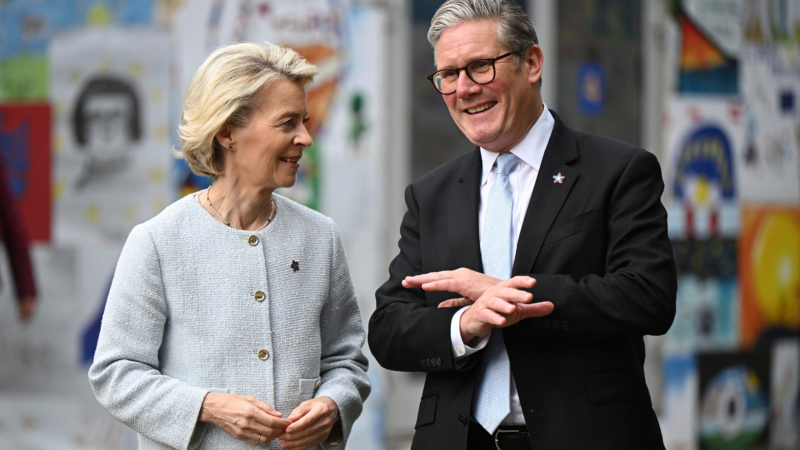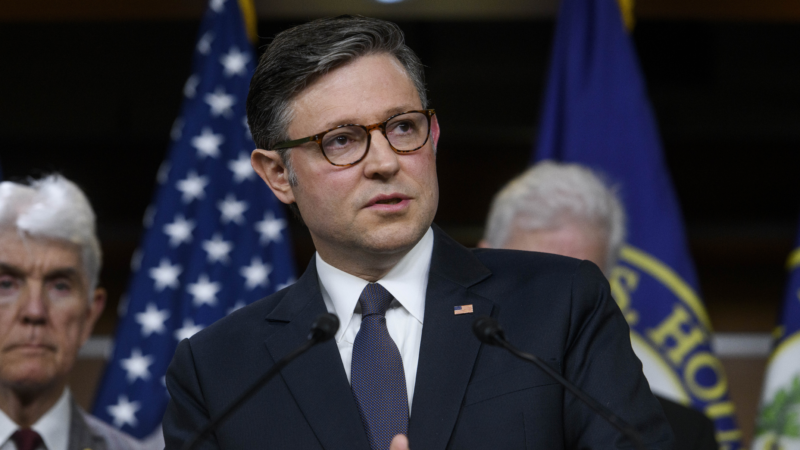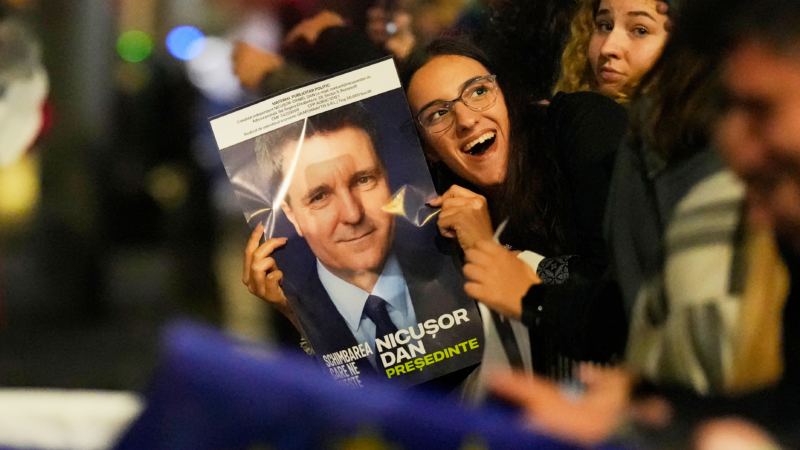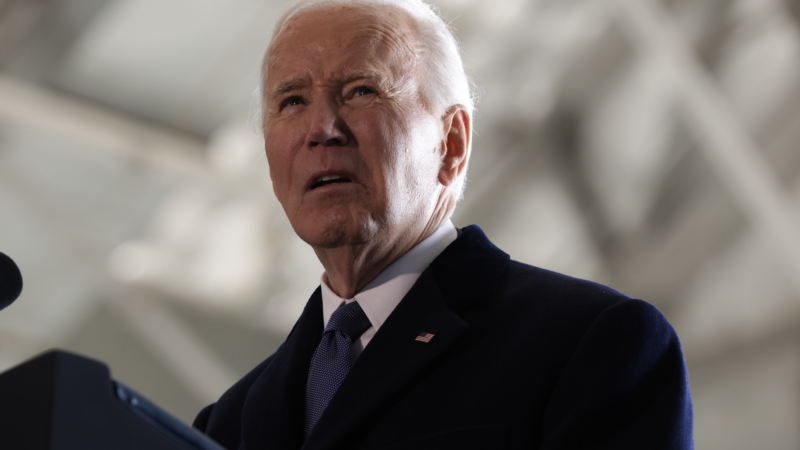Bezos’ changes at ‘Washington Post’ lead to mass subscription cancellations — again
More than 75,000 digital subscribers to The Washington Post have cancelled since its owner, billionaire Amazon founder Jeff Bezos, announced on Wednesday that he would radically overhaul the paper’s opinion pages to reflect libertarian priorities and to exclude opposing points of view.
Wednesday’s announcement led to the immediate resignation of Opinions Editor David Shipley. He had vainly sought to persuade Bezos to drop the plans, according to a person with direct knowledge. Shipley did not respond to requests for comment.
Bezos’ decision also prompted an outcry from longtime Post figures, including Associate Editor David Maraniss and former Executive Editor Marty Baron. Baron called the move “craven” and told Zeteo News that Bezos, whom he praised extensively in his 2023 memoir, was “basically fearful” of President Trump.
The number of cancellations comes from a person who asked for anonymity because of the fear of repercussions at the Post. The Washington Post Co. declined to comment on the figures, first reported here by NPR, citing its status as a privately held company. Nor did it comment on the criticism.
A net loss of hundreds of thousands
The rapid-fire cancellations since Wednesday represent a historic level of reader fury over the changes. Yet they are only the most recent wave in a series of mass cancellations that began in late October. That was when Bezos killed a planned endorsement of Democratic presidential nominee Kamala Harris. Between then and Election Day, more than 300,000 subscribers canceled the Post, as NPR first reported last month. That was more than 12% of digital subscribers, which make up the vast majority of the paper’s paid circulation.
The Post has aggressively wooed new subscribers to replace them, boosting circulation by 400,000, often at highly discounted rates, according to a Post executive. (The executive spoke on condition of anonymity because the Post does not release circulation figures.)
Even so, there is broad consensus inside the Post that without Bezos’ decisions, the paper would be up hundreds of thousands of paying subscribers from where it was before the election. Instead, the numbers NPR has been able to obtain indicate a net loss of a couple hundred thousand subscribers.
In support of “personal liberties and free markets”
During Trump’s first term, under Bezos’s ownership and Baron’s editorial leadership, the paper adopted the motto, “Democracy Dies in Darkness,” an alliterative promise to deliver hard-hitting accountability journalism. The editorial page, which operates separately from the news section, laid out an argument in 2020 titled, “A second Trump term might injure the democratic experiment beyond recovery.”
No such emphasis was found in Bezos’ memo on Wednesday setting out his new philosophy, which promised a reorientation of the opinion section in support of “personal liberties and free markets”.
“We’ll cover other topics too of course,” Bezos wrote in a note to staffers that he posted publicly on Elon Musk’s social media site X, “but viewpoints opposing those pillars will be left to be published by others.”
In this age of the Internet, he said, a newspaper no longer must provide a “broad-based opinion section that [seeks] to cover all views.”
The Post newsroom has covered the return of Trump aggressively. Wednesday’s announcement alarmed senior news editors severely enough that Executive Editor Matt Murray assured them that morning that he had heard nothing to suggest that Bezos wanted to interfere with news coverage, which is separate from the opinion section. Murray sent a memo to the full newsroom to say they should continue to report “without fear or favor,” in the memorable journalistic aphorism.
A stated desire to regain public trust
Bezos said his decision not to publish the planned Harris endorsement just days before the election was driven by a desire to shore up the paper’s standing among the broader public. “Most people believe the media is biased,” he wrote in an opinion piece published by the paper. “Anyone who doesn’t see this is paying scant attention to reality, and those who fight reality lose.”
Yet he also admitted that his other business interests made things complicated. Amazon and the space company Blue Origin maintain contracts with the federal government worth billions of dollars annually. Government regulators make decisions daily that can affect their vast fortunes. The Trump administration is moving aggressively to reshape the government and private industry in line with the president’s priorities. The media has served as a particular target.
“You can see my wealth and business interests as a bulwark against intimidation, or you can see them as a web of conflicting interests. Only my own principles can tip the balance from one to the other,” Bezos wrote in October.
Distrust grows in newsroom
Since then, however, he has given $1 million toward Trump’s inauguration fund. In January, Bezos sat on the dais with other tech titans as the president was sworn in. And on Wednesday evening, he had dinner with Trump, the president told The Spectator.
Many Post staffers have questioned the motives for Bezos’ warmer relations with Trump. Some have been more public than others.
In early January, Shipley rejected a cartoon by Pulitzer Prize-winning staffer Ann Telnaes, whose proposed sketch showed Bezos alongside other tech and media billionaires abasing themselves before Trump. Telnaes quit, telling NPR, “Of course these are businesses, and I understand that. But they own a newspaper and they have an obligation, frankly, to protect the free press.”
Another spike of subscription cancellations followed in the week after Telnaes quit and Shipley’s decision became public — at a volume many thousands above typical levels.
This story marks the first time that this cancellation wave has been reported publicly.
Since Bezos’ announcement Wednesday, some of the Post’s competitors have capitalized on the news. The Guardian sent a fundraising pitch to readers, saying its fate will never be dictated by a billionaire owner. The New York Times‘ opinions editor Kathleen Kingsbury declared, “our audience is looking to us for insight, discernment and leadership in some of the most chaotic and uncertain moments in the modern era,” in a note announcing veteran Times journalist David Leonhardt would become editorial director of the section.
How new at-home HPV test kits could help Alabama fight cervical cancer
The Food and Drug Administration has approved the country’s first at-home HPV screening kit, a disease that causes nearly all cervical cancers. While some hope the new kits might turn things around, others have questions.
5 years since Brexit, are Britain and the EU getting back together?
With a war in Ukraine and the U.S. rethinking alliances, Britain and the European Union may need each other more than they thought. They're holding their first summit since Brexit Monday.
Trump’s bill advances in rare weekend vote as House conservatives negotiate changes
Republicans advanced their massive tax cut and border security package out of a key House committee during a rare Sunday night vote as deficit hawks allowed it to move forward.
Low prices and Trump’s trade war are pushing these Northwest farmers to the brink
Almost all of the wheat grown in the Pacific Northwest is for export, and even before President Trump's trade war, farmers were dealing with rock bottom prices and slagging global demand.
Centrist wins Romania’s tense presidential race over hard-right nationalist
A huge turnout Sunday played a key role in the tense election that many viewed as a geopolitical choice between East or West.
Former President Joe Biden diagnosed with prostate cancer
Biden has been diagnosed with prostate cancer, which has metastasized to the bone, according to a statement from his personal office.








